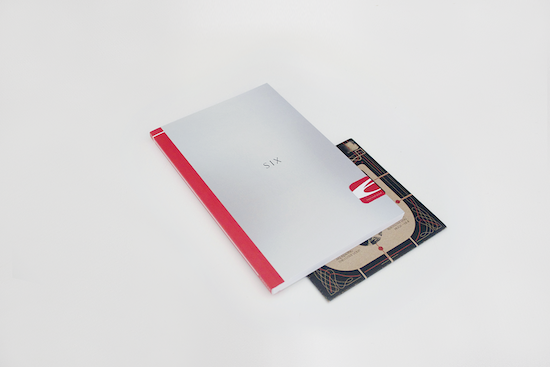Reading Six Poets from London’s independent poetry imprint Toothgrinder, it is of great assurance (and tangible excitement) that poetry can still be a novel channel for young, fiery and righteous writers. Of course, this should come as no surprise to anyone that’s kept up with the shady lexical operations of Toothgrinder over the last couple of years; but it’s reassuring nonetheless.
It’s always been mildly upsetting to me, as a student of literature, how many sorts of a poetic disposition are alienated from poetry by the academic stuffiness. But in the pages of Six Poets we have a potent antidote, literary aloe vera, a vaccine to ensure this simply happens no more. Whilst not quite a complete cultural reset, this anthology is an exciting and enthralling reflexive kick against the pricks. Be it the hallucinogenic absurdities of Tom Butler’s epic ‘A Play in A Church About Love (Running time 506,880 Minutes)’, or the transportive evocations of Fauness Lace’s ‘Epping Forest, 2019’ and ‘Vauxhall, 1952’), Six Poets grips attentions effortlessly with an inventive array of poetry as diverse as the authors behind it.
Much in the same way that Alan Bennett’s 2015 Hardy to Larkin Anthology of the same name compiled six of the playwright’s favourite wordsmiths in one place, Toothgrinder’s Six Poets compiles a diverse sextet of young poets into an artfully curated anthology. Contained within these striking pages are poems by the aforementioned Butler and Lace, alongside Joseph Roberts, Marta Zenka, Angus Rogers, and Toothgrinder’s editor and co-founder Edward Green, each given around ten pages to realise their poetic vision in a more fleshed out way than most anthologies allow.
This is best demonstrated with Butler’s closing salvo. ‘A Play In A Church About Love…’ is a free-form eleven-page affair that begins with a maddening stream of consciousness, starting giddy, before quickly descending into utter absurdism. Pages of melting computer code wherein phrases like “my image screams ‘I’m a hieroglyph’” and “I beg thee become petulant / induce dementia” can be picked out among a heady deluge of square brackets and numbers. It’s a dizzying work, but far more potent for being allowed to stretch out for the entirety of the collection’s last section.
Marta Zenka’s ‘I Need A Job Please’ is a similarly full throttle and exciting read, albeit in a smaller, more concentrated dose. Panic-stricken, live-wire, the collection’s second section’s highlight, ‘I Need A Job Please’, utilises a concrete form as Zenka frenetically balances the need to make experimental art whilst life itself goes to shit: “I like fucking but UC are fucking me too hard / Now I make/existential art”
However, it’s reductive to boil ‘Six Poets’ down to its simple raw components; it is more than a cluster of very good poems. Indeed, the design of co-founder William Green (brother of Edward) of the collection is as crucial as the words; regal calligraphy is tossed into a situationist melting pot, emerging in a way that is entirely aesthetically novel. Between sections, red and black graphics too, help the cause, and there’s something endlessly satisfying about three-digit page numbers in a sub-100 page work.
This dedication to design is evocative of something beyond a need to look good, though. Six Poets exists not in a vacuum, but as part of a wider artistic picture. It’s as influenced by music and visual art as it is by the millennia of poetry that predate it. Indeed, several contributors pursue musical interests as well as literary ones, and often this is realised in Six Poets. Be it through meter that evokes prominent musical voices, or something less subtle altogether, music runs through Six Poets.
No less realised is this than on ‘Letter to Huw’ by Edward Green, who also fronts art-rock situationists Legss. Green recounts a trip to Paris with Radio One’s Huw Stephens. Amidst the humdrum of the Hard Rock Cafe, a career of radio pleasantries weigh too heavily on the consciousness of the DJ, and he’s forced to tearily admit thus:
’I…
I…
Cannot stand any type of music.
I feel absolutely nothing
…
The post and the punk and the vigour and the oh
It means absolutely nothing to me.’
Elsewhere, Joseph Roberts’ poems open the anthology with a more traditional aplomb. ‘In Senescence’ deals with the passing of time with vibrant floral metaphors, while ‘Dog’ skips from verse to verse with wild-eyed glee, as the poet intimately details the futility of the titular animal. The penultimate verse is the highlight of Roberts’ contributions to ‘Six Poets’, detailing the dog’s clumsy and stupid escape.
Dog stupid.
It ran off.
The Owner doesn’t know where.
Dog doesn’t either, and
It can’t consult a map, or
Ask a stranger for directions, but
Somewhere there is a Dog.
Six Poets is a delightful anthology. Poems to make you laugh, poems to make you cry, poems to leave you grasping and gasping for an inhaler. Betwixt these pages, six writhing poetic voices of London and beyond are thriving, in this small silver read that’s as gratifying as they come.
Six Poets is published by Toothgrinder Press


